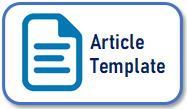Opportunity and Challenges to Integrate Zakat Into Indonesian Fiscal System in The Light of Siyasah Shariyyah
DOI:
https://doi.org/10.14421/grieb.2013.011-05Keywords:
Zakat, Fiscal, Integration, SWOT analysis, Siyasah Shar‘iyyahAbstract
Nowadays, the idea of integrating zakat into fiscal system has arisen in Muslim countries including Indonesia. It is argued that zakat, in history, has played a significant role to create welfare among societies. It is proven at the time of Caliph 'Umar ibn 'Abdul 'Aziz that zakat has alleviated poverty at that time alongside tax. Having considered such achievement, some scholars argued that zakat should be reintegrated into current fiscal system. This paper, therefore, attempts to study the feasibility of integrating zakat into Indonesian fiscal system. Employing descriptive analysis based on Siyasah Shariyyah (high objectives of the Shariah). Therefore, the objectives of the study are set with these following points: 1) to address the strength and the weakness of the implementation of this idea, 2) to assess its opportunity as well as its threat, 3) to examine whether the integration of zakat will secure maslahah (benefit) or create mafsadah (harm). The result shows that the integration of zakat into current fiscal system is in line with the Siyasah Shariyyah. Hence, the strong willingness and commitment of government is strongly required to applicate it. The proper model of integration should also be planned well. Moreover, nurturing the understanding to all parties, especially to the nonMuslims and secularists, that this idea is really beneficial and not discriminatory should be promoted.References
Ahmad, Habib, 2004. Role of Zakat and Awqaf in Poverty Alleviation, IDB-IRTI
al-Bayhaqi (d.458 H). al-Sunan al-Kubra. Hyderabad: Majlis Dairah al-Ma‘arif al-Nizamiyah (1344 H), vol. 4
Alfitri, 2006. The Law of Zakat Management and Non-Governmental Zakat Collectors in Indonesia. International Journal of Not-for-Profit Law, 8(2), 55-64.
Ali, Nuruddin, M., 2006. Zakat Sebagai Instrumen Dalam Kebijakan Fiskal. Jakarta: Raja Grafindo Persada
al-Qardawi, Yusuf, 1999. Fiqh az-Zakat: A comparative Study. London: Dar al-Taqwa Ltd.
al-Qardawi, Yusuf, 2006. al-Zakah, Dawruha Fi ‘Ilaj al-Mushkilat al-Iqtisadiyah wa Shurut Najahiha. Cairo: Dar al-Shuruq, second edtition
Beik, Irfan Syauqi. “Pro Ekonomi Syariah Pro Rakyat.” Republika (2008, Desember 22).
Damanhuri, Didin S. Et.al., 1997. Tinjauan Kritis Idiologi Liberalisme dan Sosialisme. Badan Pendidikan dan Pelatihan Depdagri.
Hafidhuddin, D. and Beik, Irfan Syauqi, 2010. Zakat Development: The Indonesia's Experience. Jurnal Ekonomi Islam al-Infaq,.
Hafidhuddin, D., & alfaridy, H. R., 2008. Panduan Zakat Praktis. Dompet Dhuafa Republika
Hafidhuddin, Didin, 2006. Analysis on the Effectiveness of Zakah Agency Promotion in Zakah Collection to Improve Poor Family Welfare. Media Gizi & Keluarga.
http://www.bi.go.id/web/en/Investor+Relations+Unit/Economic+Data/External+Debt+Statistics+of+Indonesia/Buku+Utang+Mei+2012.htm. (Accessed on June 6, 2012)
http://www.data.worldbank.org/indicator. (Accessed on March 10, 2012)
http://www.id.wikipedia.org/wiki/islam_di_Indonesia. (Accessed on May 28, 2012)
http://www.imz.or.id/new/news/1225/koalisi-masyarakat-zakat-protes-uu-no-232011. (Accessed on May 28, 2012)
http://www.thejakartapost.com/news/2001/11/29/tax-deduction-039zakat039-must-apply-nonmuslims.html . (Accessed on October 22, 2012)
Ibn Kathir, 774 H/1997. Al-Bidayah wa al-Nihayah. Riyadh: Hajar Publisher
Ibn Qayyim (d.751 H), 1380/1961. al-Turuq al-Hukmiyyah fi al-siyasah al-shar‘iyyah.Cairo: al-Mu‟assasah al-„Arabiyah li al-Tiba„ah
Kahf, Monzer, 1997. Potential Effects of Zakat on Government Budget. IIUM Journal of Economics and Management, 5(1), 67-85
Kahf, Monzer, 2002. Introduction to the Stdy of the Economics of Zakah. In Economics of Zakah, edited by Monzer Kahf. Jeddah: IRTI, 15-60.
Kamali, M. H., 1989. Siyasah Shar'iyah or the Policies of Islamic Government. The American Journal of Islamic Social Sciences, 6(1).
Salim, Arskal, 2008, The shift in Zakat Practice in Indonesia; from piety to an Islamic Socio- Political-Economic System. Thailand: Asian Muslim Action Network Silkworm Books.
Wibisono, Yufuf. “Menimbang Relasi Zakat Dan Pajak Di Indonesia: Integrasi Zakat Dalam Pembangunan Nasional.” Presented At Zakat Public Discussion - Indonesia Magnificence Of Zakat (Imz), “Mengurai Relasi Antara Zakat Dan Pajak: Menyikapi Dikeluarkannya Pp No.60 Tahun 2010,” Jakarta (16th Of November 2010)
Downloads
Published
Issue
Section
License
Global Review of Islamic Economics and Business is licensed under a
Creative Commons Attribution-ShareAlike 4.0 International License



















